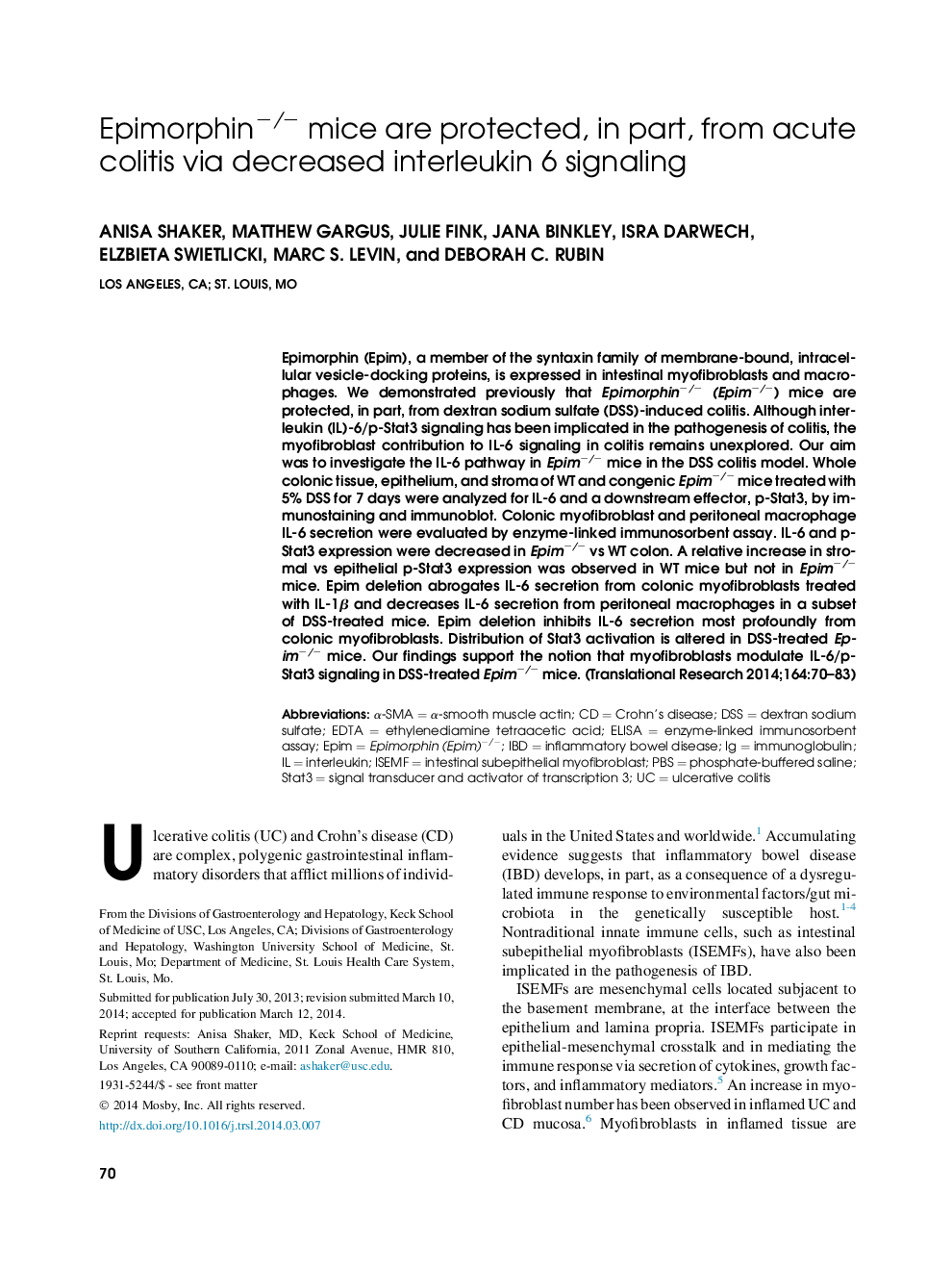| Article ID | Journal | Published Year | Pages | File Type |
|---|---|---|---|---|
| 3840050 | Translational Research | 2014 | 14 Pages |
Epimorphin (Epim), a member of the syntaxin family of membrane-bound, intracellular vesicle-docking proteins, is expressed in intestinal myofibroblasts and macrophages. We demonstrated previously that Epimorphin−/−(Epim−/−) mice are protected, in part, from dextran sodium sulfate (DSS)-induced colitis. Although interleukin (IL)-6/p-Stat3 signaling has been implicated in the pathogenesis of colitis, the myofibroblast contribution to IL-6 signaling in colitis remains unexplored. Our aim was to investigate the IL-6 pathway in Epim−/− mice in the DSS colitis model. Whole colonic tissue, epithelium, and stroma of WT and congenic Epim−/− mice treated with 5% DSS for 7 days were analyzed for IL-6 and a downstream effector, p-Stat3, by immunostaining and immunoblot. Colonic myofibroblast and peritoneal macrophage IL-6 secretion were evaluated by enzyme-linked immunosorbent assay. IL-6 and p-Stat3 expression were decreased in Epim−/− vs WT colon. A relative increase in stromal vs epithelial p-Stat3 expression was observed in WT mice but not in Epim−/− mice. Epim deletion abrogates IL-6 secretion from colonic myofibroblasts treated with IL-1β and decreases IL-6 secretion from peritoneal macrophages in a subset of DSS-treated mice. Epim deletion inhibits IL-6 secretion most profoundly from colonic myofibroblasts. Distribution of Stat3 activation is altered in DSS-treated Epim−/− mice. Our findings support the notion that myofibroblasts modulate IL-6/p-Stat3 signaling in DSS-treated Epim−/− mice.
